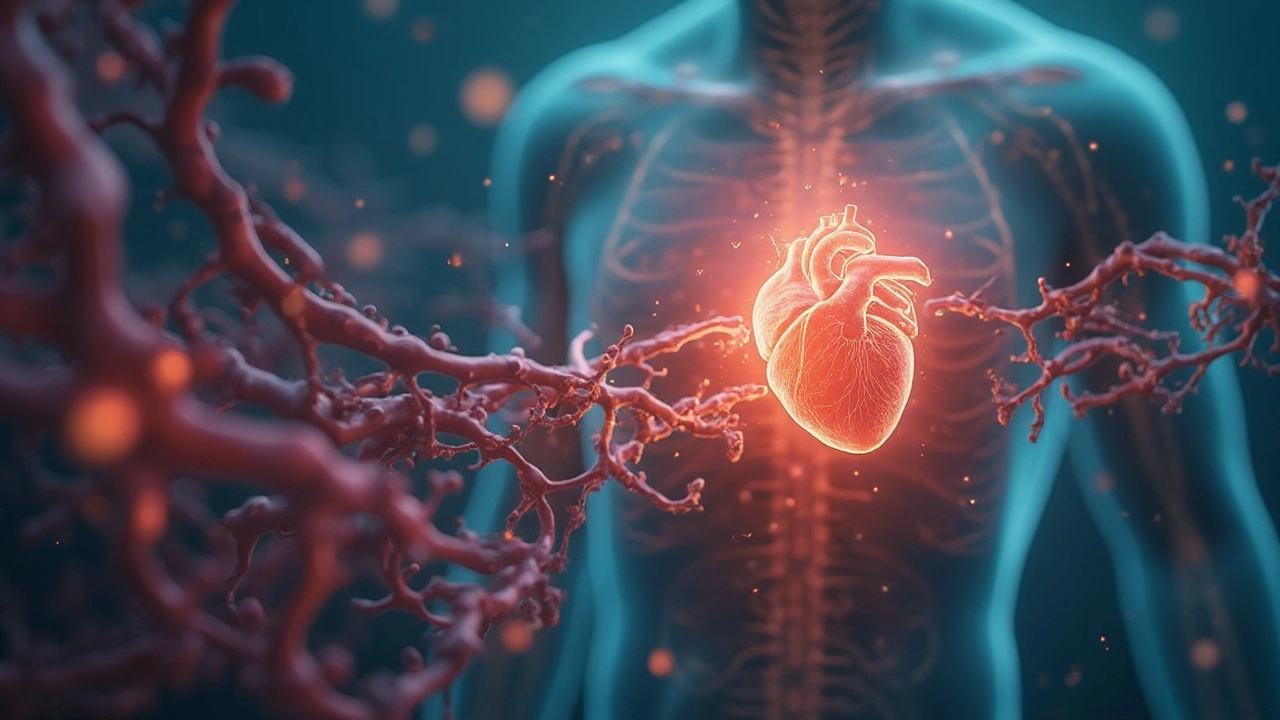High cholesterol often feels abstract until you see the numbers. Cholesterol itself isn't a villain — your body needs it — but too much of the wrong type raises risk for heart disease and stroke. This page gives clear steps: understand your test, adjust daily habits, and know when medication is the smart move.
A standard lipid panel reports total cholesterol, LDL (bad), HDL (good), and triglycerides. LDL is the one doctors watch most — higher LDL means higher heart risk. HDL helps remove cholesterol; higher HDL is usually better. Triglycerides rise after overeating carbs or alcohol and can add risk when very high.
Tests can be fasting or non-fasting; most labs accept non-fasting results now. If you have risk factors — diabetes, high blood pressure, family history of early heart disease — your doctor will focus on lowering LDL more aggressively. Typical LDL targets vary by risk: lower targets for people with heart disease or diabetes.
Diet changes work and are easy to start. Swap saturated fats (fatty red meat, butter, full-fat dairy) for unsaturated fats (olive oil, avocados, nuts). Eat more soluble fiber — oats, beans, lentils, apples — which helps pull cholesterol out of your system. Add fatty fish twice a week (salmon, mackerel) for omega-3 benefits. Cut trans fats completely; read labels for "partially hydrogenated oils."
Move more. Aim for 150 minutes a week of moderate exercise (brisk walking, cycling). Losing even 5-10% of body weight lowers LDL and triglycerides. Quit smoking — it lowers HDL and damages vessels. Limit alcohol: small amounts can raise HDL, but too much raises triglycerides and weight.
Supplements like plant sterols and soluble-fiber powders can help a bit, but they don’t replace diet or medicines for people at high risk. Always check with your prescriber before adding supplements, especially if you take other drugs.
When lifestyle changes aren’t enough, medications are effective. Statins are the first-line treatment to cut LDL and reduce heart events. If statins aren’t tolerated or don’t reach goals, doctors may add ezetimibe or newer PCSK9 inhibitors. Report muscle pain, unusual fatigue, or dark urine—your doctor will decide if the medicine needs adjusting.
Follow up with repeat blood tests as your clinician recommends — usually 6–12 weeks after starting a change, then every 3–12 months. Keep a record of your numbers and treatments so you and your provider can track progress.
If you’re unsure where to start, ask for a clear plan: target LDL, timeline, and whether meds are needed now or later. Small daily changes add up. Focus on real steps you can keep doing — better food choices, consistent activity, and regular check-ins with your doctor.

Fenofibrate, usually known for managing cholesterol levels, has a surprising impact on overall cardiovascular health. By targeting triglycerides, it not only improves heart performance but also reduces risks associated with heart attacks and strokes. This article delves into how fenofibrate works, its benefits, potential side effects, and tips for safe consumption. Whether you're new to fenofibrate or looking to optimize its use, here's comprehensive guidance for enhancing heart health.
Flushing medications pollutes waterways and harms aquatic life. Learn why take-back programs are the safest disposal method, what medications should never be flushed, and how to properly dispose of old pills at home.
Coughing is often seen solely as a physical issue, but there's more to it than just a tickle in the throat. Emerging research shows a connection between mental health and chronic coughs, where stress and anxiety can exacerbate coughing symptoms. Understanding this link can lead to more effective management and relief. By addressing both physical and mental factors, you can tackle those persistent coughs more holistically. Discover practical tips and insights in managing your cough with mental well-being in mind.
Generic drugs for children may save money, but they aren't always safe. Learn the hidden risks, the KIDs List, dosing mistakes, and what parents and doctors must do to protect kids from dangerous medication errors.
Traveling can be an exciting experience, but for many, it comes with unwanted nausea. This article discusses practical and easy-to-implement tips to manage nausea while traveling, including preventive measures, diet considerations, and effective remedies.
Elderly patients often switch to generic medications to save money, but age-related changes in the body and low health literacy can affect safety and adherence. Learn which drugs need caution, how to monitor for side effects, and what questions to ask your doctor.